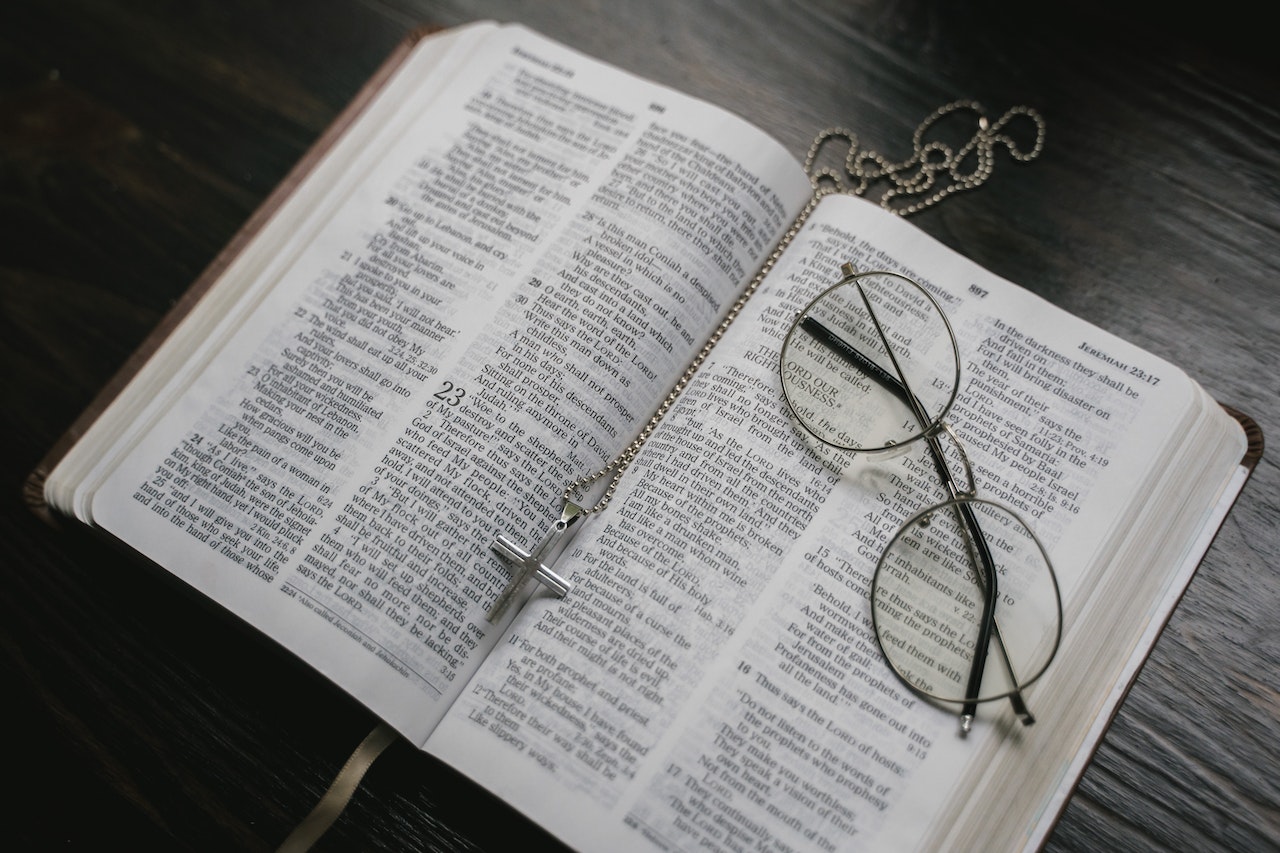The question of whether the Orthodox Church changed the Bible is a topic of historical and theological debate. Some scholars argue that the Orthodox Church did make certain modifications to the biblical text over time, while others maintain that the Church merely preserved and transmitted the Scriptures faithfully. This question requires a careful examination of historical evidence and an understanding of the development of the biblical canon within the Orthodox tradition.
Table of Contents
The Role of Orthodox Christianity in Shaping the Biblical Canon
Did Orthodox Change The Bible?
When it comes to the Bible, many people assume that its contents have remained unchanged throughout history. However, the reality is that the process of determining which books should be included in the Bible was not a straightforward one. One of the major players in shaping the biblical canon was Orthodox Christianity. In this article, we will explore the role of Orthodox Christianity in shaping the biblical canon and whether it can be said that they changed the Bible.
To understand the role of Orthodox Christianity in shaping the biblical canon, we need to go back to the early centuries of Christianity. During this time, there was a wide variety of writings circulating among different Christian communities. These writings included the Gospels, letters, and other texts that were attributed to various apostles and early Christian leaders.
As the Christian faith spread, there arose a need to establish a standard set of texts that would be considered authoritative and inspired. This process of determining which books should be included in the Bible is known as the formation of the biblical canon. The role of Orthodox Christianity in this process cannot be overstated.
Orthodox Christianity played a crucial role in shaping the biblical canon through its early councils and the decisions made by its leaders. One of the most significant councils in this regard was the Council of Carthage in 397 AD. This council, which was attended by Orthodox bishops, affirmed a list of books that would later become the New Testament as we know it today.
However, it is important to note that the role of Orthodox Christianity in shaping the biblical canon was not one of changing the Bible, but rather of discerning which books were already considered authoritative by the early Christian communities. The process involved careful consideration of the historical context, authorship, and theological consistency of the various writings.
In fact, the criteria used by Orthodox Christianity in determining the biblical canon were not arbitrary. They were based on the belief that the Holy Spirit guided the early Christian communities in recognizing the inspired nature of certain writings. This belief was rooted in the understanding that the Bible is not a human invention, but a divinely inspired collection of texts.
While it is true that there were debates and disagreements among different Christian communities regarding the inclusion of certain books, the role of Orthodox Christianity was to provide a unified voice and establish a standard set of texts that would be accepted by the majority of Christians.
In conclusion, the role of Orthodox Christianity in shaping the biblical canon cannot be overlooked. Through its early councils and the decisions made by its leaders, Orthodox Christianity played a crucial role in discerning which books should be included in the Bible. However, it is important to note that this role was not one of changing the Bible, but rather of recognizing the authoritative and inspired nature of certain writings. The process involved careful consideration and was guided by the belief in the Holy Spirit’s guidance. Ultimately, the role of Orthodox Christianity was to provide a unified voice and establish a standard set of texts that would be accepted by the majority of Christians.
Historical Perspectives on the Development of the Orthodox Bible

Did Orthodox Change The Bible?
When it comes to the Bible, many people assume that it has remained unchanged throughout history. However, the reality is that the Bible has undergone various changes and revisions over the centuries. One of the most significant periods in the development of the Bible was during the formation of the Orthodox Church.
The Orthodox Church, also known as the Eastern Orthodox Church, played a crucial role in the preservation and transmission of the Bible. However, it is important to note that the Orthodox Church did not change the content of the Bible itself. Instead, it played a vital role in determining which books would be included in the Bible and which would be excluded.
During the early centuries of Christianity, there was a great deal of debate and disagreement about which books should be considered sacred and authoritative. This led to the formation of various Christian sects, each with their own set of scriptures. The Orthodox Church, along with other early Christian communities, sought to establish a canon of scripture that would be universally accepted.
The process of determining the canon of scripture was not an easy one. It involved careful consideration of the historical context, authorship, and theological content of each book. The Orthodox Church, through its councils and synods, played a crucial role in this process. These gatherings of bishops and theologians debated and discussed the merits of various books, ultimately deciding which ones would be included in the Bible.
One of the most significant councils in the development of the Orthodox Bible was the Council of Carthage in 397 AD. This council, attended by bishops from across the Christian world, confirmed the canon of scripture that is still recognized by the Orthodox Church today. It included the books of the Old Testament, as well as the New Testament, which consists of the Gospels, Acts, Epistles, and Revelation.
It is important to note that the Orthodox Church did not arbitrarily choose which books to include in the Bible. Instead, it relied on the guidance of the Holy Spirit and the consensus of the early Christian community. The decisions made by the Orthodox Church were based on careful consideration and theological reflection.
While the Orthodox Church played a significant role in the formation of the Bible, it did not change the content of the scriptures themselves. The books that were included in the Bible were already considered sacred and authoritative by the early Christian community. The role of the Orthodox Church was to discern and confirm the canon of scripture, ensuring that the faithful would have a reliable and consistent collection of sacred texts.
In conclusion, the Orthodox Church did not change the Bible. Instead, it played a crucial role in determining which books would be included in the Bible and which would be excluded. Through its councils and synods, the Orthodox Church carefully considered the historical context, authorship, and theological content of each book. The decisions made by the Orthodox Church were based on the guidance of the Holy Spirit and the consensus of the early Christian community. The result is a Bible that has been preserved and transmitted faithfully throughout history.
Comparing Orthodox and Protestant Views on Biblical Canon
Did Orthodox Change The Bible?
When it comes to the Bible, there are many different interpretations and beliefs about its origins and contents. One of the most debated topics is whether the Orthodox Church changed the Bible. To understand this controversy, it is important to compare the views of the Orthodox and Protestant churches on the biblical canon.
The Orthodox Church, also known as the Eastern Orthodox Church, has a long history that dates back to the early days of Christianity. It is one of the oldest Christian traditions and has a strong influence on the development of the biblical canon. The Orthodox Church believes that the Bible is a sacred text inspired by God and that its contents are divinely inspired.
According to Orthodox tradition, the biblical canon was established through a process of discernment guided by the Holy Spirit. The early Church Fathers, who were influential theologians and leaders, played a crucial role in determining which books should be included in the Bible. They carefully examined the writings and teachings of the apostles and other early Christian figures to ensure that the selected books were in line with the true teachings of Jesus Christ.
The Orthodox Church recognizes a slightly different canon than the Protestant Church. While both traditions include the same New Testament books, the Orthodox Church also includes several additional books in the Old Testament. These books, known as the Deuterocanonical books, are considered by the Orthodox Church to be inspired and authoritative. However, the Protestant Church, following the lead of Martin Luther during the Reformation, does not consider these books to be part of the biblical canon.
This difference in the canon has led some to accuse the Orthodox Church of changing the Bible. However, it is important to note that the Orthodox Church’s canon was established long before the Protestant Reformation. The inclusion of the Deuterocanonical books in the Orthodox canon can be traced back to the early centuries of Christianity, and it is based on the teachings and practices of the early Church.
The Protestant Church, on the other hand, has a different view on the biblical canon. During the Reformation, Martin Luther and other reformers questioned the authority of certain books in the Catholic canon, including the Deuterocanonical books. They believed that these books did not have the same level of authority as the rest of the Bible and should not be considered as part of the inspired Word of God.
As a result, the Protestant Church removed these books from the biblical canon, creating a canon that is different from that of the Orthodox Church. This difference in the canon has been a point of contention between the two traditions, with each side defending their own understanding of the Bible.
In conclusion, the Orthodox Church did not change the Bible. The Orthodox canon was established through a careful process of discernment guided by the Holy Spirit and has remained unchanged for centuries. While there are differences between the Orthodox and Protestant canons, these differences are based on theological and historical considerations. It is important to approach this topic with an open mind and a willingness to understand and respect the beliefs of others.
The Impact of Orthodox Tradition on Biblical Interpretation
Did Orthodox Change The Bible?
When it comes to the Bible, there is no denying that it holds a special place in the hearts of millions of people around the world. It is a book that has been passed down through generations, cherished for its wisdom and guidance. But have you ever wondered if the Bible we have today is the same as the one that was originally written? Specifically, did the Orthodox Church have any influence on the content and interpretation of the Bible?
To answer this question, we need to delve into the history of the Orthodox Church and its relationship with the Bible. The Orthodox Church, also known as the Eastern Orthodox Church, traces its roots back to the early Christian communities in the Byzantine Empire. These communities held a deep reverence for the Scriptures and sought to preserve and protect them.
One of the ways in which the Orthodox Church influenced the Bible was through the process of canonization. The canonization of the Bible refers to the process of determining which books should be included in the official biblical canon. The Orthodox Church played a significant role in this process, as it was one of the major Christian communities that helped establish the canon we have today.
However, it is important to note that the Orthodox Church did not change the content of the Bible. The books that were included in the canon were already widely accepted by the early Christian communities. The Orthodox Church simply affirmed the authenticity and authority of these books.
In addition to canonization, the Orthodox Church also had a profound impact on the interpretation of the Bible. Throughout its history, the Church has developed a rich tradition of biblical interpretation, known as exegesis. Exegesis involves the careful study and analysis of the biblical text in order to understand its meaning and relevance.
The Orthodox Church’s approach to biblical interpretation is rooted in its belief in the Holy Spirit’s guidance. Orthodox Christians believe that the Holy Spirit continues to inspire and illuminate the Scriptures, allowing for a deeper understanding of God’s message. This belief has shaped the way in which the Orthodox Church approaches the Bible, emphasizing the importance of prayer, meditation, and the guidance of the Holy Spirit in interpreting the text.
While the Orthodox Church’s interpretation of the Bible may differ from other Christian traditions, it is important to recognize that these differences do not imply a change in the content of the Bible itself. The Bible remains the same, regardless of how it is interpreted by different communities.
In conclusion, the Orthodox Church has had a significant impact on the interpretation of the Bible. Through its role in the canonization process and its rich tradition of biblical interpretation, the Church has helped shape our understanding of the Scriptures. However, it is important to note that the content of the Bible has not been changed by the Orthodox Church. The books included in the canon were already widely accepted, and the Church’s interpretation is based on a deep reverence for the Scriptures and the guidance of the Holy Spirit. So, the next time you pick up your Bible, remember that its message has remained unchanged throughout history, and it is up to each individual to seek the truth within its pages.
Conclusion
No, the Orthodox Church did not change the Bible.
For licensing reasons, we must provide the following notice: This content was created in part with the help of an AI.


